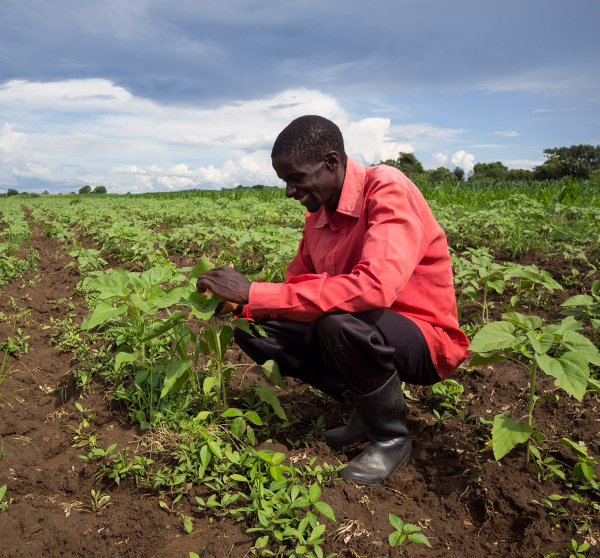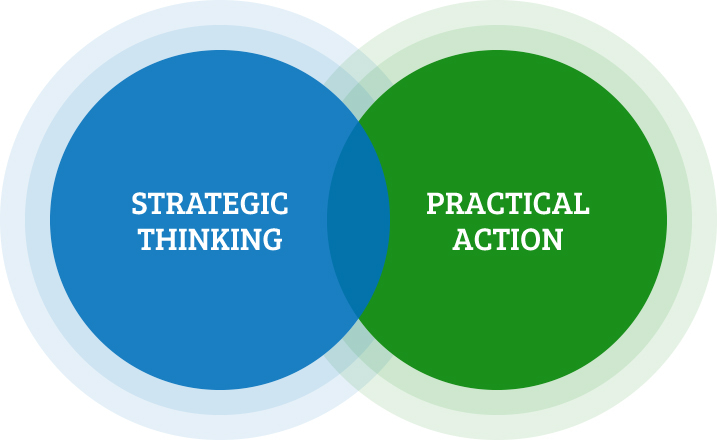News
The early adopter bringing others on board

After receiving help to improve his dairy farming enterprise, Gilbert Mweemba wants to give back by teaching his rural neighbours everything he knows.
“I’m willing to help any farmer who wants to learn,” says Mr Mweemba, pictured right, who started working with the Zambia Dairy Transformation Programme (ZDTP) in 2017.
Funded by the New Zealand Government, the ZDTP is a five-year initiative drawing on international skills and experience to improve the lives of smallholder dairy farmers and help meet the needs of Zambia’s growing and increasingly-discerning local market.
As the name suggests, ‘transformation’ is key. At present, most smallholder farmers in Zambia still produce milk using traditional methods. To meet an increasing demand for dairy products, they need to transform the way they farm and manage their businesses.
To encourage this, the ZDTP is working with six dairy farming unions or cooperatives across the Copperbelt and Central Province to show how improved dairy systems can improve on-farm productivity as well as milk quality.
ZDTP Programme Manager Tania Thomson says says working with existing farmer group structures is a great way to accelerate development.
"You can demonstrate the value of new approaches within a group setting and the success of early adopters becomes contagious – others want to follow suit," she says.
Mr Mweemba and his wife, Mary, were amongst those early adopters, showing enthusiasm for learning and trying new farming practices from day one.
As a result, the Mweembas’ farm in Central Province was chosen as one of the programme’s 10 ‘Focus Farms’ at the end of last year.
Focus Farms are used to demonstrate changes to a farm’s management that are realistic for other farmers to adopt into their own dairy enterprises.
"They are normal farms, with normal challenges,” says Mrs Thomson. “They benefit from slight improvements through the ZDTP rather than receiving all the latest modern technology.
"As the programme works with a range of farming households, farmers who are just starting out in dairy, those who have been struggling to build up their herds and yet others who, once they have built up their herds realise that increased production often comes with increased costs (labour, transport, feed), there is no ‘one size fits all' solution. And definitely no package of handouts that can magically turn someone into a successful dairy farmer."
With this in mind, the programme’s team of local business and extension staff work closely with farmers to help them understand their business and the constraints and challenges they face.
Farmers, with technical support from ZDTP, are then encouraged to adopt techniques, such as fodder conservation for the dry season which are both affordable and help to optimise cost of production and in so doing hopefully maximise profit.
Mr and Mrs Mweemba have so far introduced new feeding regimes to their farm, including making silage to feed to their animals in the dry season. They have built a ‘model’ silage pit on their farm, using concrete supplied by the ZDTP and bricks provided from their own resources.
They also have demonstration plots on their farm, showcasing different grasses such as buffalo grass and Rhodes grass, in addition to sorghum and sun hemp.
Mr Mweemba says before the ZDTP came along, his animals were producing 5 to 6 litres of milk each a day. “When I started using silage, they started producing 8 to 12 litres a day.”
Another way in which the ZDTP has helped Mr Mweemba is by supplying a new variety of sunflower seeds, which will be used to show farmers how sunflowers can be ground and combined with crushed maize to produce home-made concentrates that are cheaper than locally-available options.
Mr Mweemba says after pressing the sunflowers and removing the oil, he will feed the “cake” that remains to his animals. “There is nothing that I will waste.”
He has also been making hay, which can be baled and stored to provide an added source of roughage during the year.
Ms Thomson says other Focus Farmers have constructed a shelter for their animals using advice provided by ZDTP, introduced better milk hygiene practices and changed their feeding practices to improve nutrition and reduce feed wastage.
“This is expected to contribute to increased milk yields, improved financial performance and other positive changes.”
Mr Mweemba says he is excited to share his knowledge about growing fodder for silage, preparing hay and making home-made concentrates with his peers.
“I want them to do what I’m doing at my farm. Doing this will change the poverty in our community.”
The ZDTP is being implemented by Prime Consulting International Ltd in partnership with NIRAS International Development from Sweden. Cooperatives and farmer members are being provided with advice and support from a skilled national team with additional technical assistance provided through a team of highly-qualified and experienced international advisors.
For further information on the ZDTP, please contact Programme Country Manager Tania Thomson on tania[at]primeconsultants.net or +260 96 456 4206.



